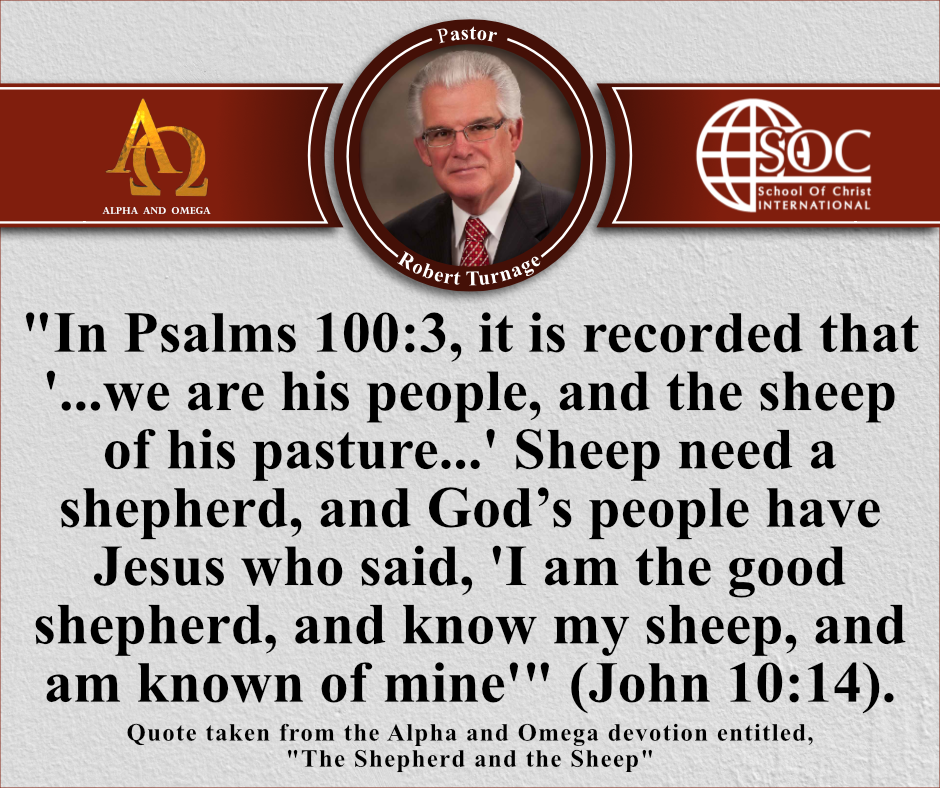THE SHEPHERD AND THE SHEEP

In my lifetime, I have little to no experience with sheep. One of my first remembrances was when I was preaching a revival in the state of Tennessee around Christmas time. The church I was ministering in had a float in the annual Christmas parade. Their float consisted of a manger scene in which they were to have live sheep. The people prepared everything in its proper place and only needed to put the live animals on the float. The sheep were nervous and would not step up on the trailer. Someone thought to call the owner of the sheep. He instructed them to be patient with the animals, and he would be at the parade site very shortly. When he arrived, we all marveled at what happened. He spoke to the sheep, walked up the ramp, and they followed him without hesitation. The sheep followed the shepherd where he led them.
One of my last pastoral messages was from Luke 15:6, where it reads, “And when he cometh home, he calleth together his friends and neighbours, saying unto them, Rejoice with me; for I have found my sheep which was lost.” He said, “...I have found my sheep...” In Psalms 100:3, it is recorded that “...we are his people, and the sheep of his pasture.”
Why are we likened to sheep when even a casual, general study of sheep is not flattering to the animal because of specific character flaws. For example, sheep have no sense of direction; they are flock animals and will follow other sheep even to a place of death. They are without defense from predators. They are nervous and easily frightened. Yet they are innocent, gentle, and pure. Another symbol of a lamb is sweetness, forgiveness, and meekness.
Sheep need a shepherd. When a sheep falls, he cannot get up without help. The sheep must be led to clean water and good pasture. A sheep is known to drink from muddy water when good water is only feet away. Shepherds put oil on sheep to protect their ears and eyes from parasites. No wonder David said in the 23rd Psalm that the good shepherd (John 10:11) leads into green pastures and beside still waters and restored the soul. Jesus gives the oil of the Spirit to raise a standard against all adversaries and enemies (Isaiah 59:19). Sheep will follow whoever is leading. They have a very poor sense of direction and can be led astray. Sheep are known to have almost no defense mechanism to protect themselves, and when they are wounded, they cannot care for themselves and, in the natural, other animals must lick their wounds.
But there is a strength and invincibility among sheep. Jesus said His people hear His voice and another they would not follow (John 10:27-28 and John 10:5). They may have indecencies, but they make it up with loyalty and awareness. Sheep need a shepherd, and God’s people have Jesus who said, “I am the good shepherd, and know my sheep, and am known of mine” (John 10:14).
